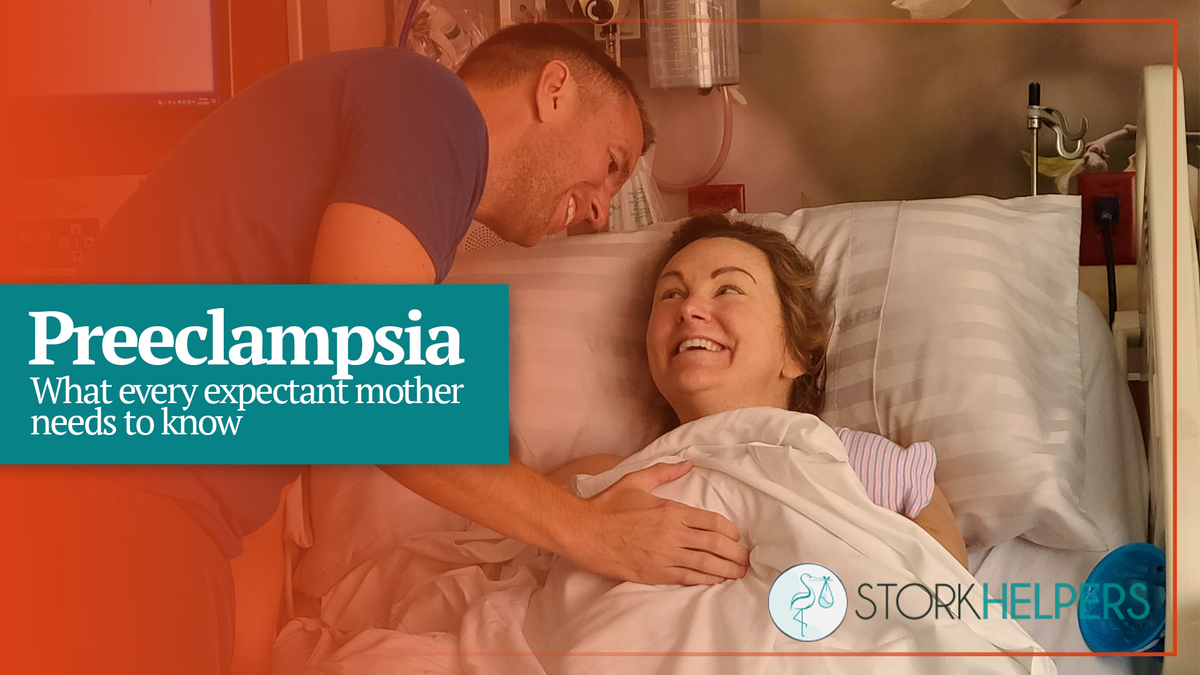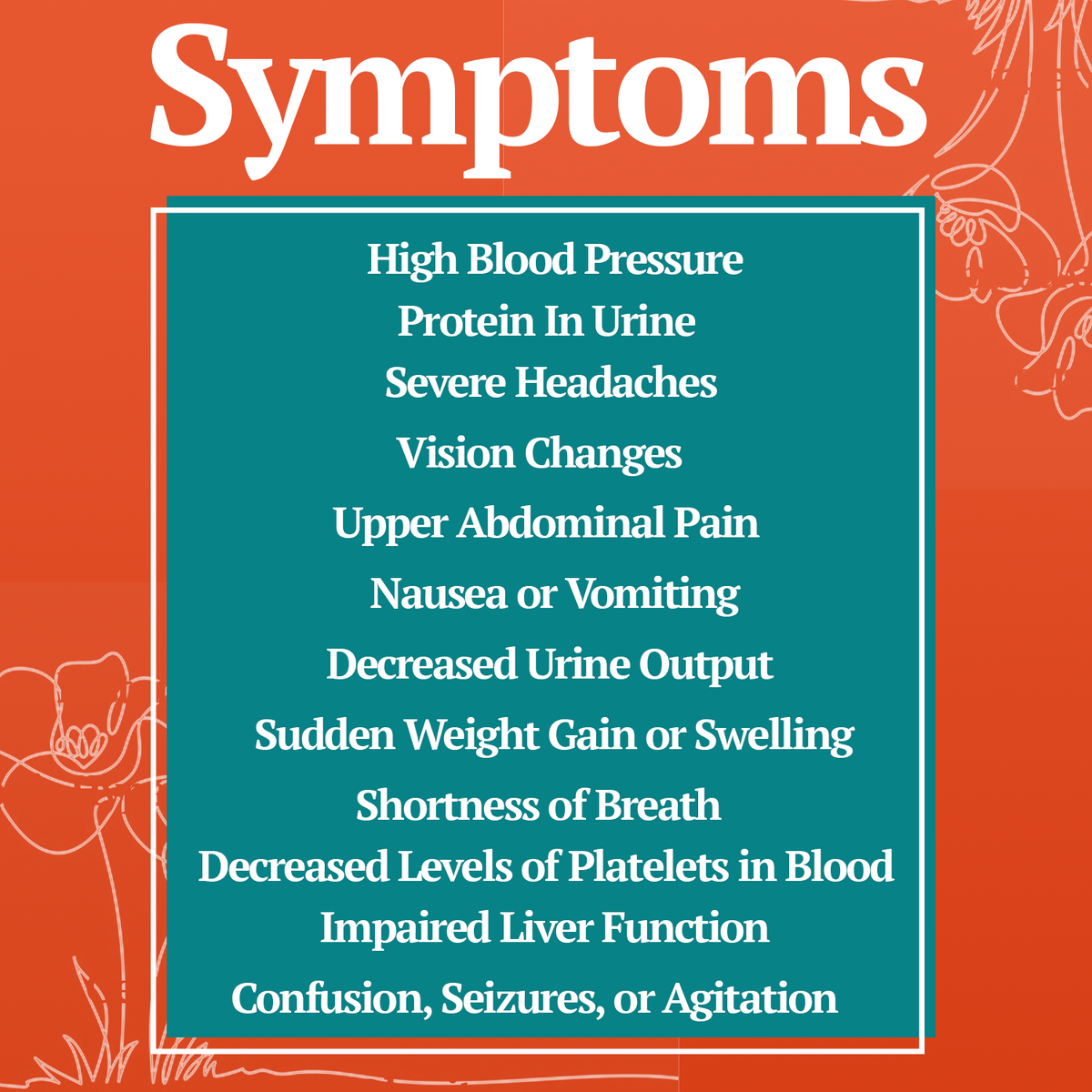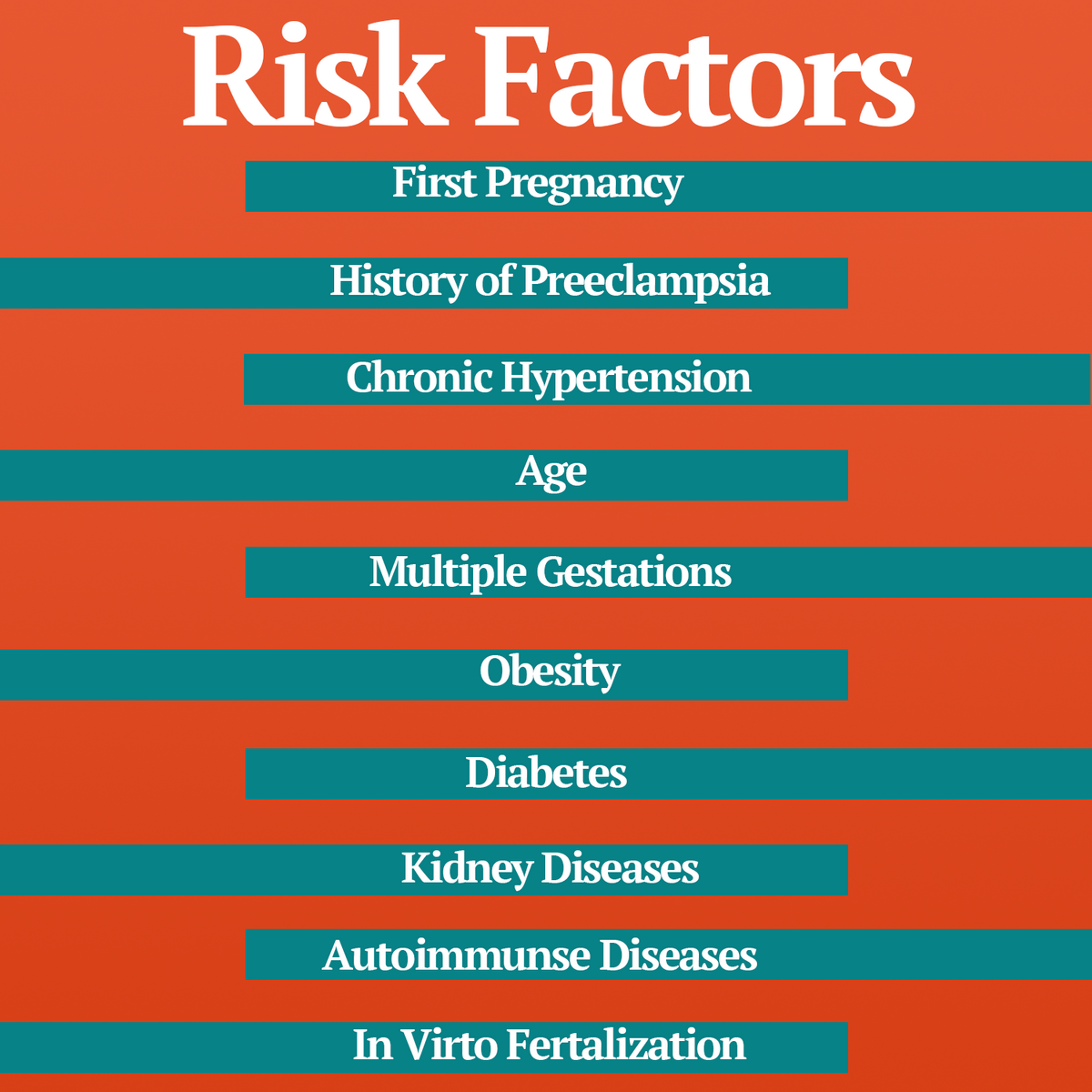Preeclampsia: What Every Expectant Mother Needs to Know

Pregnancy is a magical time in your life, but we know it can also be overwhelming. It's natural to worry about the health of you and your baby, and we want to help ease those concerns.
While complications during pregnancy can occur, it's important to remember that they are not the norm. In fact, many moms have completely healthy pregnancies and births! However, we believe it's essential to be informed about potential complications, so you can be prepared and take necessary precautions.
In the post, we will discuss preeclampsia, a rare but serious condition that can affect some pregnant mamas. Preeclampsia is characterized by high blood pressure and can lead to damage of organs if left untreated.
March of Dimes, an organization that helps promote health for mamas during pregnancy says that preeclampsia affects just 5-8% of pregnant mamas in the US. So, the chances of you developing this complication are low.
Continue reading to learn more about the symptoms of preeclampsia, risk factors, and what to do if you notice warning signs.

The Symptoms of Preeclampsia
Preeclampsia is a pregnancy complication that typically affects mothers after the first 20 weeks of pregnancy (though it can occur up to six weeks after birth).
Moms and their loved ones should be on the lookout for the following preeclampsia symptoms to ensure that this complication is caught early.
Here are the symptoms of preeclampsia.
- High blood pressure (hypertension)
- Protein in the urine (proteinuria)
- Severe headaches
- Vision changes, such as blurred vision, sensitivity to light, or temporary loss of vision
- Upper abdominal pain, usually under the ribs on the right side
- Nausea or vomiting
- Decreased urine output
- Sudden weight gain or swelling, particularly in the face and hands
- Shortness of breath
- Decreased levels of platelets in the blood (thrombocytopenia)
- Impaired liver function
- Confusion, seizures, or agitation (in severe cases)
Remember moms, not all women with preeclampsia will display these symptoms. Some women with preeclampsia will have no symptoms at all. That is why attending your pre-natal check-ups and communicating with your doula are so important. Be sure to notify your doctor or doula if you notice any changes to your health.

Who is at Risk for Preeclampsia?
Some moms are more at risk for preeclampsia than others. It is important for those moms to regularly monitor their blood pressure to watch out for hypertension or high blood pressure.
Remember, if you are in the groups listed below, it does not mean you will develop preeclampsia. Also, if you fall outside of this list, you may still be at risk of developing this complication.
Factors for an increased chance of developing preeclampsia.
- First pregnancy: Pregnant women with no prior history of pregnancy are at a greater risk of developing preeclampsia compared to those who have had previous pregnancies.
- History of preeclampsia: Women with a history of preeclampsia are at higher risk of developing it in their next pregnancies.
- Age: Women older than 35 are at higher risk of developing preeclampsia.
- Multiple gestations: Women who are carrying twins, triplets, or more have an increased likelihood of developing preeclampsia.
- Obesity: Women who are obese before pregnancy have a greater chance of developing preeclampsia.
- Chronic hypertension: Women who have high blood pressure before pregnancy or who develop it early in pregnancy are more prone to developing preeclampsia.
- Diabetes: Women who have pre-existing diabetes or who develop gestational diabetes during pregnancy are at higher risk of developing preeclampsia.
- Kidney disease: Women with pre-existing kidney disease are at an elevated risk of developing preeclampsia.
- Autoimmune diseases: Women with certain autoimmune diseases, like lupus, are more vulnerable to developing preeclampsia.
- IVF: Women who undergo in vitro fertilization (IVF) treatment may have an increased chance of developing preeclampsia during pregnancy.
What Do I Do if I Notice Symptoms of Preeclampsia?
If you are pregnant and you notice some of the signs of preeclampsia, then you should contact your healthcare specialist or doula immediately. The good news is that with early detection, the chances of further complications drastically diminish.
Preeclampsia treatment is different for every person, depending on the severity of the complication and the specifics of the situation.
When you go to the doctor, they will perform a physical examination and likely order blood and urine tests to determine whether these are preeclampsia symptoms. Depending on the stage of your pregnancy and the severity, your doctor may prescribe additional testing or treatment. This may include medication to lower your blood pressure or hospitalization for further monitoring.
If you have already been diagnosed with preeclampsia, then it is important to follow your doctor's instructions for treatment. Preeclampsia management may include regular medication, bed rest, or early induced birth.
Care You Can Count on From Stork Helpers
Navigating your and baby's health during pregnancy can be overwhelming, but it's important to remember that you are a strong and capable mama. Your body is doing amazing things, and there is support available to help you through every step of your journey. By working with a trusted healthcare provider and a compassionate doula, you can feel empowered and confident as you bring new life into the world.
When you recruit a doula for your pregnancy, you get a partner who has been there and done that. Your doula has seen the challenging side of pregnancy as well as the joyous side. Because of that, your doula can guide you every step of the way so you can be sure your voice is always heard, and your questions are always answered.
Stork Helpers are your Cincinnati and Dayton doulas. Click here to book your appointment!
For more free pregnancy tips and guidance, follow Stork Helpers on Facebook, Instagram, and LinkedIn!
Are you happy with the difference Stork Helpers made during your pregnancy? Leave us a quick review here!

